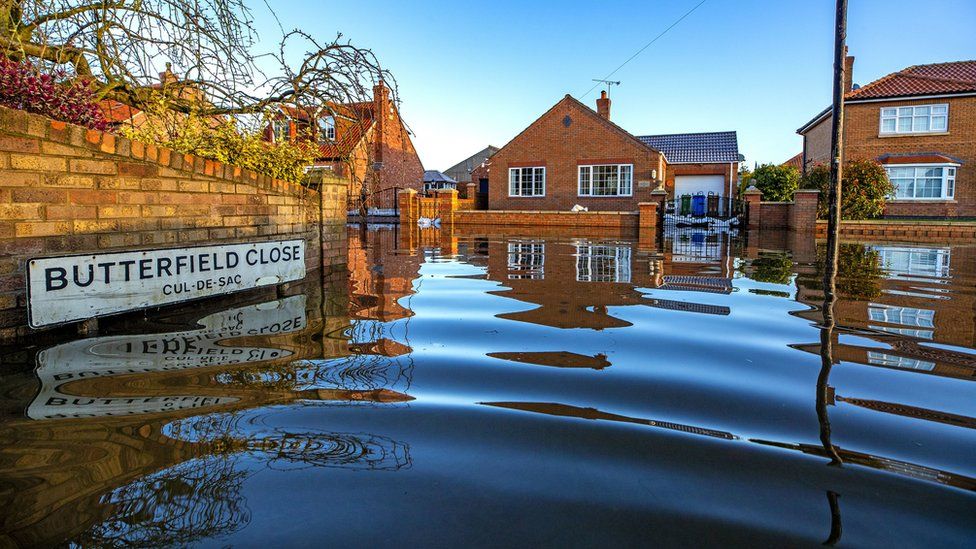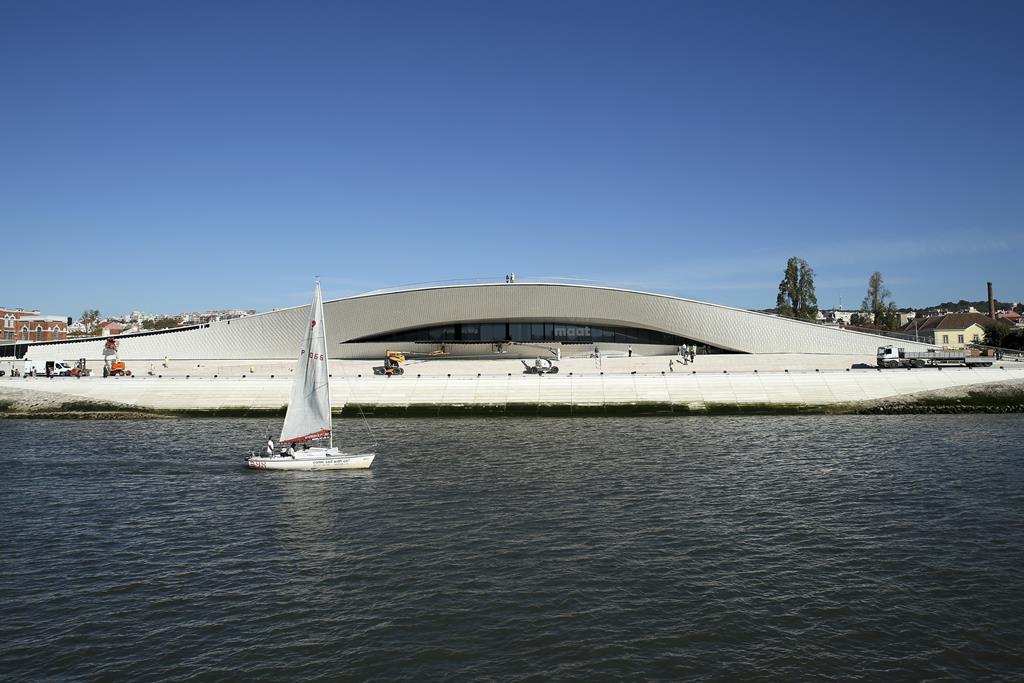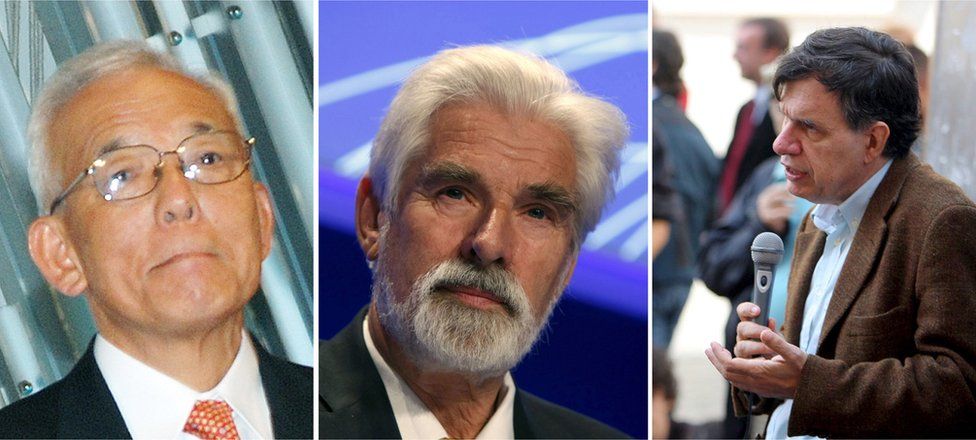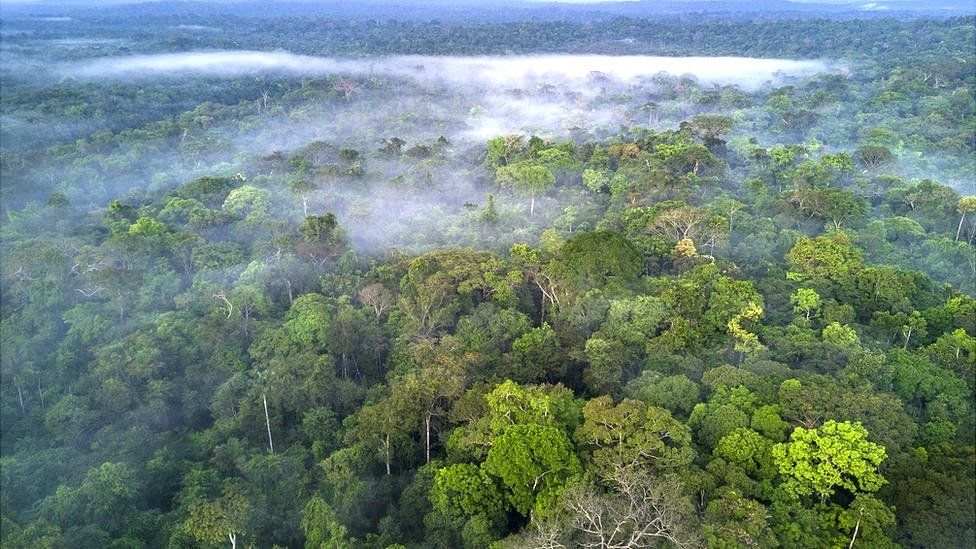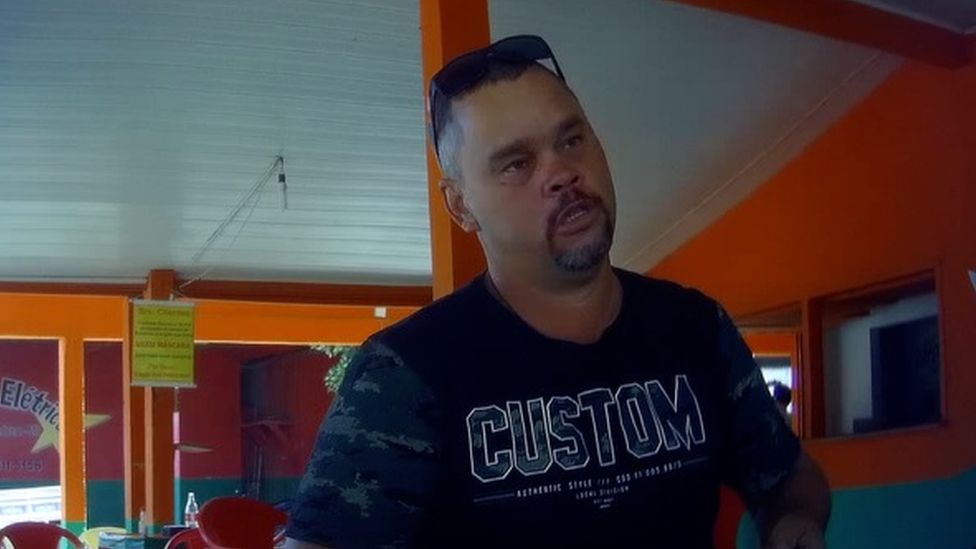Animation by Alex Kessling
This blog was created because I'm very much concerned about our Planet and the many environmental issues which deserve being known by everybody. Some are real catastrophes while others are achievements of great importance for the survival of numerous endangered species or the health of the only planet we've got: E A R T H !
To my dear visitors and commenters
Hi, everybody!
I've noticed with lots of joy and happiness, that thousands of comments have been written in my posts. It's wonderful that so may people around the world appreciate my work. Therefore, I want to thank you for that and ,at the same time I want to ask you to be this blog's followers. It's fast and easy!
Make it be even more visited and spread all over the world! I'm a woman, a teacher of English in Portugal, and I've been away for quite a long time because of my father's health.
Unfortunately he died from Covid19 a few months ago. Now I felt it was time to restart my activity in this and other blogs I owe. I've recently created a new one in a partnership with a street photographer, Mr. Daniel Antunes. He's fabulous!
https://pandpbydandd.blogspot.com
I'd like you to visit it and, who knows, become our followers. The poems, chronicles and thoughts are all mine.
Thank you so much!
Kisses :-)
Search This Blog
Saturday, October 16, 2021
Should we be drinking milk?
In recent years, there's been a lot of debate about whether drinking the milk of other animals is good for us. But how do the arguments for and against drinking dairy milk stack up?
For a more in-depth look, see BBC Future’s ‘Why humans have evolved to drink milk’ and 'Is it better to drink cow’s milk or a dairy-free alternative?'.
Etiquetas:
eating healthy
,
Environmental Problems
,
Food
,
Milk
Wednesday, October 13, 2021
The link between climate change, seaweed and ice cream
Seaweed - we’ve been using it for centuries in food and toiletries. It can help to keep toothpaste and ice cream soft.
But in some parts of the world, supply has been affected by climate change.
Now people in Zanzibar are learning new methods of farming through the help of outreach projects like Milele Zanzibar Foundation and the Panje Project.
A video for People Fixing the World by Celestina Olulode, Esther Namuhisa, and Nicholaus Mtenga.
But in some parts of the world, supply has been affected by climate change.
Now people in Zanzibar are learning new methods of farming through the help of outreach projects like Milele Zanzibar Foundation and the Panje Project.
A video for People Fixing the World by Celestina Olulode, Esther Namuhisa, and Nicholaus Mtenga.
Etiquetas:
Climate change
,
Natural ingredients
,
nature
,
new methods of farming
Climate change: 'Adapt or die' warning from Environment Agency
By David Shukman
Science editor
BBC Climate
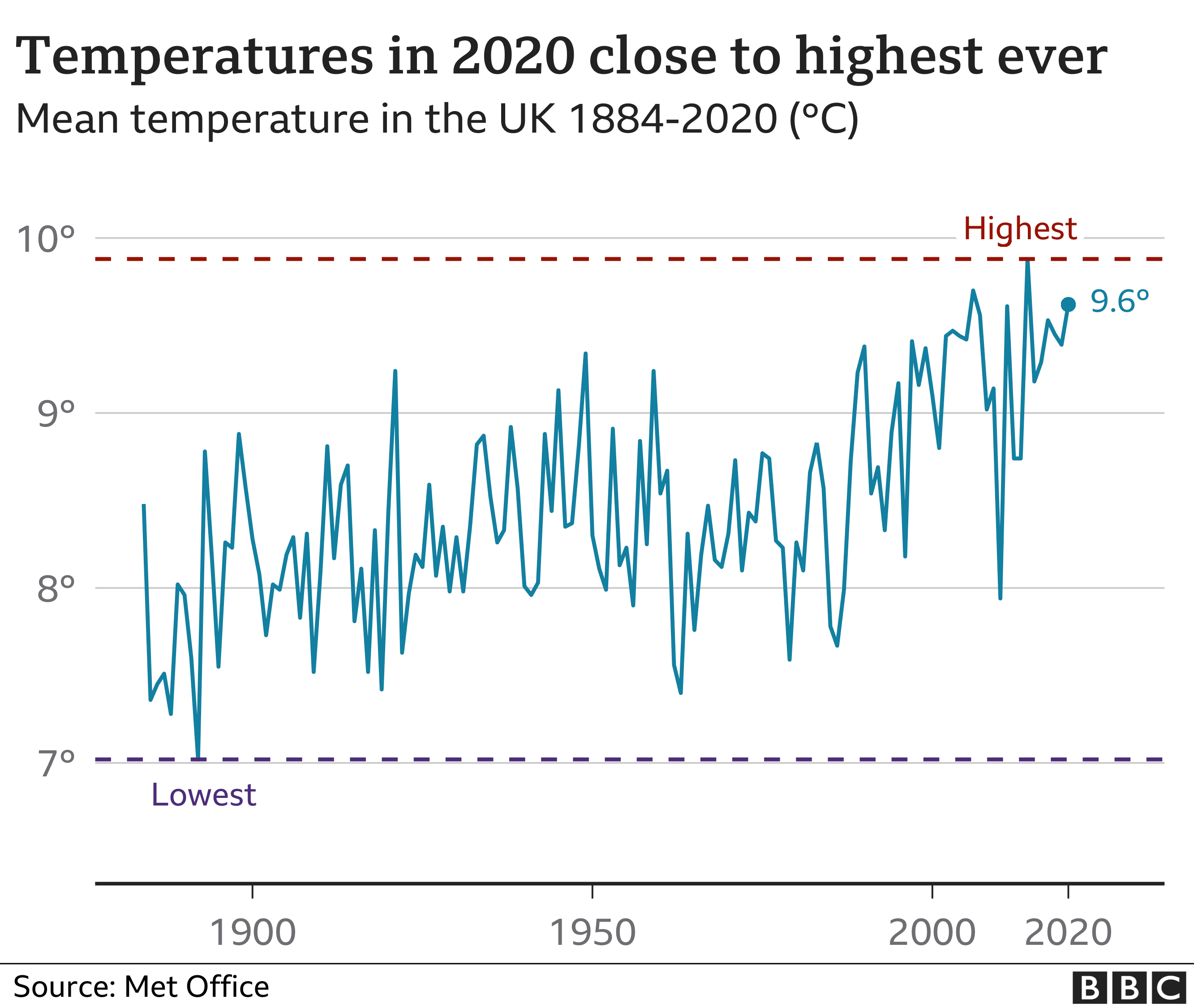
Science editor
BBC Climate
Earlier this year in Germany, dozens of people died in floods.
"That will happen in this country sooner or later" unless the UK becomes more resilient to increasingly violent weather, the agency concludes.
Emma Howard Boyd, chair of the agency, said: "It is adapt or die."
The apocalyptic tone is deliberately intended to startle governments, companies and communities into preparing for global warming effects such as higher sea levels and more extremes of rainfall and drought.
The new report, seen by the BBC ahead of its publication on Wednesday, assesses the country's readiness to cope with the many different risks of climate change.
In its response, environment department Defra said it was taking key measures to protect the UK from the effects of global warming.

We are currently heading for an increase in the global average temperature of just under 3C by the end of the century.
But the agency projects that even a smaller rise of 2C would have severe consequences:
Winter rainfall up by 6% by the 2050s and 8% by the 2080s (compared with 1981-2000)
Summer rainfall down by about 15% by the 2050s
London's sea level up by 23cm by the 2050s and 45cm by the 2080s
By the 2050s, peak river flows could be up 27% while summer flows could be down as much as 82%
An extra 3.4 billion litres of extra water needed every day before 2050, on top of the 15 billion used now
According to Ms Howard Boyd: "We can successfully tackle the climate emergency if we do the right things, but we are running out of time to implement effective adaptation measures.
"Some 200 people died in this summer's flooding in Germany. That will happen in this country sooner or later, however high we build our flood defences - unless we also make the places where we live, work and travel resilient to the effects of the more violent weather the climate emergency is bringing."
COP26 climate summit - The basics
Climate change is one of the world's most pressing problems. Governments must promise more ambitious cuts in warming gases if we are to prevent greater global temperature rises.
The summit in Glasgow is where change could happen. You need to watch for the promises made by the world's biggest polluters, like the US and China, and whether poorer countries are getting the support they need.
All our lives will change. Decisions made here could impact our jobs, how we heat our homes, what we eat and how we travel.
Etiquetas:
Climate changes
,
floods
,
raising temperatures
,
Uk climate changes
Monday, October 11, 2021
MAAT (Portugal) worried about environmental problems
Maat wants to raise environmental awareness with the 2021 exhibitions
10 dez, 2020 - 19:20 • Maria João Costa
MAAT-View from river Tagus (Lisbon-Portugal)
The Museum of Art, Architecture and Technology presented a program for 2021 focused on the climate emergency. Two exhibitions and an installation to be presented starting in March address the environmental threat.
For next year, and allowing for any unforeseen problems due to the pandemic, the MAAT team has programmed two major exhibitions and an installation. "They are long exhibitions", explains Beatrice Leanza, who points out that "short exhibitions are not ecological". It is with an eye on environmental preservation that the program was also designed.
Etiquetas:
Environment
,
Environmental Problems
,
Museums
,
Portugal
Sunday, October 10, 2021
Nobel in physics: Climate science breakthroughs earn prize
By Paul Rincon
Science editor, BBC News website
Three scientists have been awarded the 2021 Nobel Prize in Physics for their work to understand complex systems, such as the Earth's climate.
Syukuro Manabe, Klaus Hasselmann and Giorgio Parisi were announced as the winners at an event in Stockholm.
Research by Manabe and Hasselmann led to computer models of the Earth's climate that can predict the impact of global warming.
The winners will share the prize money of 10 million krona (£842,611).
It is incredibly difficult to predict the long-term behaviour of complex physical systems such as the climate. Computer models that anticipate how it will respond to rising greenhouse gas emissions have therefore been crucial for understanding global warming as a planetary emergency.
The climate models that have built on the winners' research form a crucial part of the evidence on which leaders at COP26 will base their decisions.
Japan-born Syukuro Manabe, 90, who is senior meteorologist at Princeton University in New Jersey, demonstrated how increased levels of carbon dioxide in the atmosphere could lead to increased temperatures at the surface of the Earth. In the 1960s, he led the development of physical models of the climate.
Roughly a decade later, Klaus Hasselmann, 89, from the Max Planck Institute for Meteorology in Hamburg, Germany, created a computer model that linked together weather and climate. His work answered the question of why climate models can be reliable despite weather being changeable and chaotic.
Science editor, BBC News website
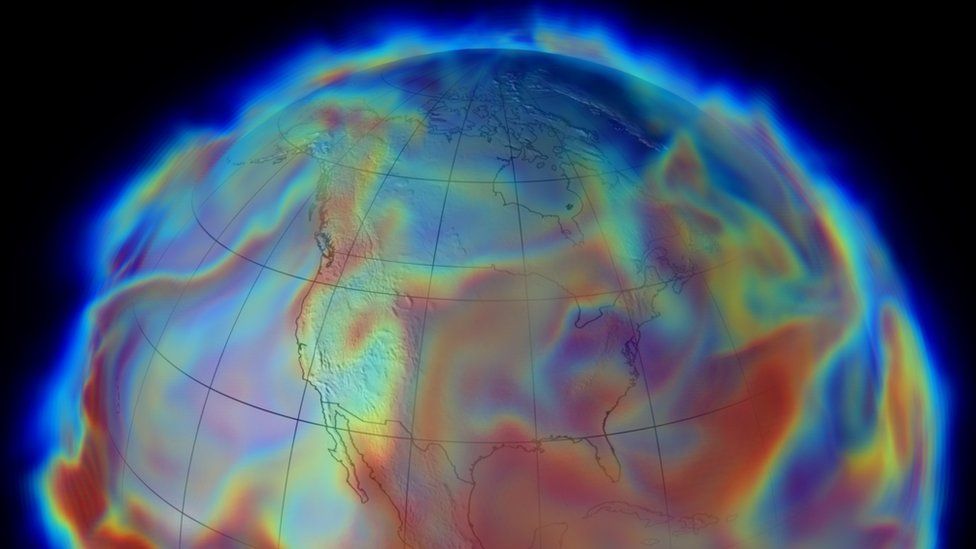
Computer analysis of the Earth's climate is important for informing efforts to tackle global warming
Syukuro Manabe, Klaus Hasselmann and Giorgio Parisi were announced as the winners at an event in Stockholm.
Research by Manabe and Hasselmann led to computer models of the Earth's climate that can predict the impact of global warming.
The winners will share the prize money of 10 million krona (£842,611).
It is incredibly difficult to predict the long-term behaviour of complex physical systems such as the climate. Computer models that anticipate how it will respond to rising greenhouse gas emissions have therefore been crucial for understanding global warming as a planetary emergency.
- A really simple guide to climate change
- What will climate change look like near me?
- Four ways climate change links to extreme weather
The climate models that have built on the winners' research form a crucial part of the evidence on which leaders at COP26 will base their decisions.
Japan-born Syukuro Manabe, 90, who is senior meteorologist at Princeton University in New Jersey, demonstrated how increased levels of carbon dioxide in the atmosphere could lead to increased temperatures at the surface of the Earth. In the 1960s, he led the development of physical models of the climate.
Roughly a decade later, Klaus Hasselmann, 89, from the Max Planck Institute for Meteorology in Hamburg, Germany, created a computer model that linked together weather and climate. His work answered the question of why climate models can be reliable despite weather being changeable and chaotic.
L-R: Syukuro Manabe, Klaus Hasselmann and Giorgio Parisi
Facebook to act on illegal sale of Amazon rainforest
By Joao Fellet and Charlotte Pamment
BBC Brasil
The Amazon rainforest is home to one in 10 known species on Earth
Facebook says it will begin clamping down on the illegal sale of protected areas of the Amazon rainforest on its site.
Illegal deforestation exposed
Many of the plots were inside protected areas, including national forests and land reserved for indigenous peoples.
Read More
The social media giant changed its policy following a BBC investigation into the practice.
The new measures will apply only to conservation areas and not to publicly owned forest.
And the move will be limited to the Amazon, not other rainforests and wildlife habitats across the world.
According to a recent study from the think tank Ipam (Instituto de Pesquisa Ambental da Amazonia), a third of all deforestation happens in publicly-owned forests in the Amazon.
Facebook said it would not reveal how it planned to find the illegal ads but said it would "seek to identify and block new listings" in protected areas of the Amazon rainforest.
Illegal deforestation exposed
In February, the BBC Our World documentary Selling the Amazon revealed that plots of rainforest as large as 1,000 football pitches were being listed on Facebook's classified ads service.
Alvim Souza Alves was trying to sell land for about £16,400
Read More
Etiquetas:
Amazon
,
illegal trading
,
rainforests
Subscribe to:
Comments
(
Atom
)
Wikipedia
Search results
